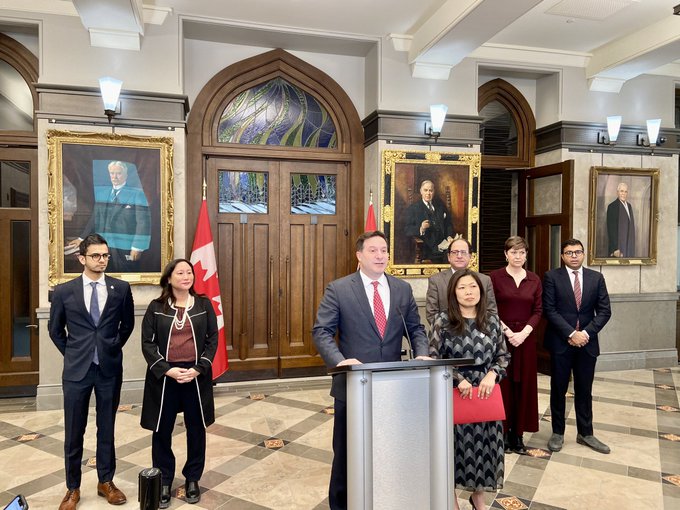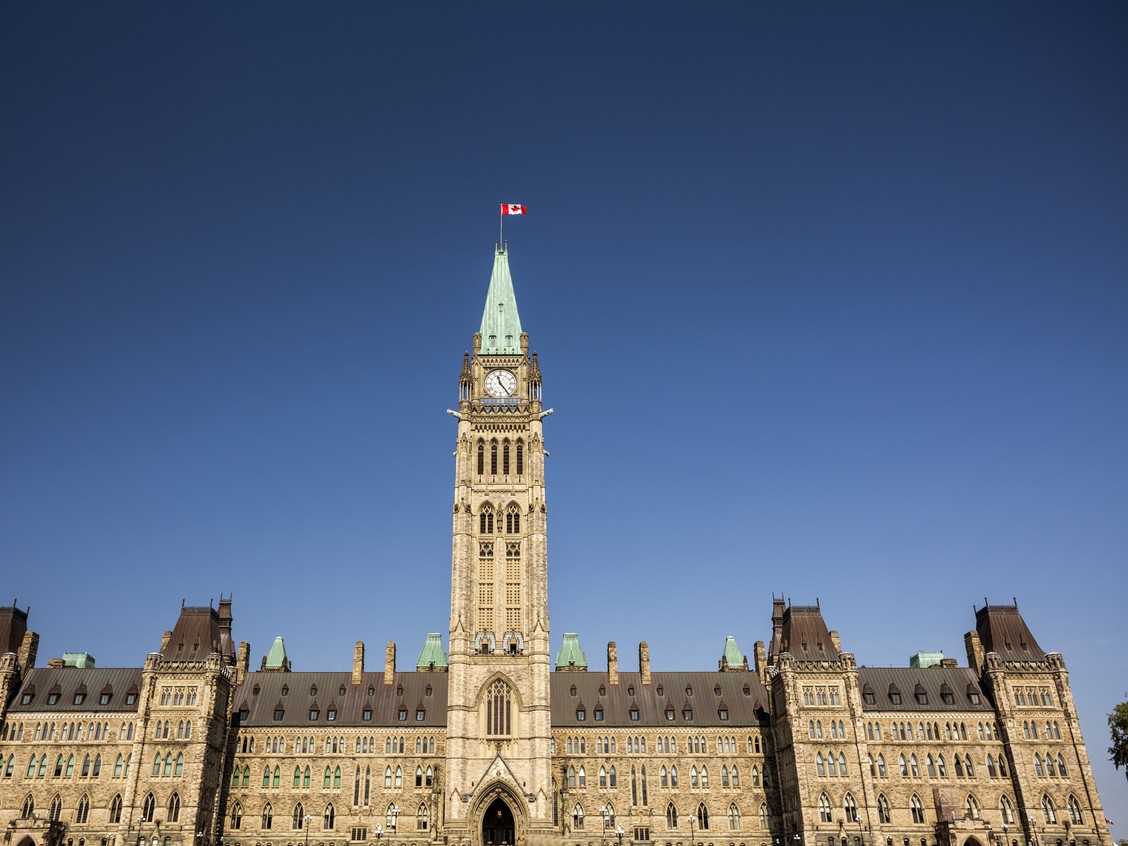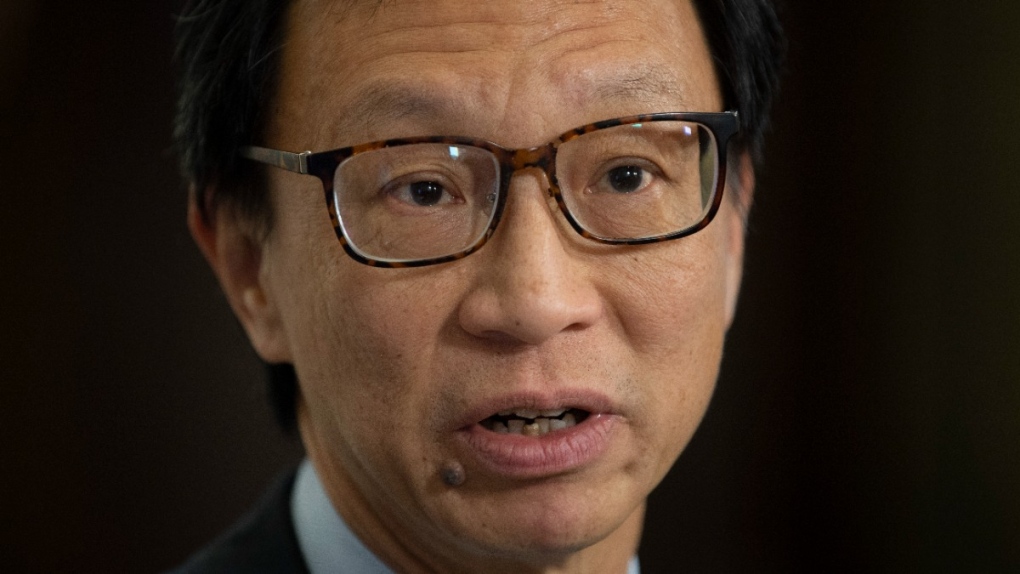The Messy Divorce Proceedings Between Ottawa and Beijing
One legislation can change your life. Tomorrow when you get up, your life will be different. Nothing belongs to you anymore.""This could affect thousands of Canadians with benign links to China because of their familial, commercial, educational, or civil society relationships in the mainland [China].""It seems very likely to me that these individuals will be seen in an unfavourable light. In the current context of extreme suspicion about all things Chinese, the risk of stigmatization is real.""Your name goes on a list, whether you are guilty or whether you are in fact a foreign agent. Once your name goes on the list, you will have a mark on your head and you will be stigmatized and that can affect your career and your life prospects."Canadian Senator Victor Oh"This is straight out of the CCP's [Chinese Communist Party] playbook, using racism as a deflection from the proper issue at hand.""It's downright offensive."Cheuk Kwan, Toronto Association for Democracy in China"[The anti-registry push is similar to the disinformation campaign that targeted me in the 2021 election].""They are using the fear of newer immigrants.""It's fertile ground for misinformation and they're exploiting the opportunity."Former Conservative MP Kenny Chiu
 |
| Marco Mendicini, Minister of Public Safety: "Today, we launched consultations on the creation of a Canadian Foreign Influence Transparency Registry.
We invite Canadians to share their views on this important tool to protect our institutions." Twitter |
That
Beijing has been infiltrating Canada at every conceivable level for
years is well known. Agents loyal to the People's Republic of China have
inserted themselves in academia, science, business and politics; their
purpose to gain influence for China. During the mainland takeover of
Hong Kong and the persecution of democracy activists those same
activists cojoining forces with the Chinese missions in Canada and
enlisting the support of Chinese students on study visas championed
Beijing.
At
the opposite end of the spectrum, Chinese Canadians of Hong Kong
background deplored Beijing's dashing of Hong Kong's freedom to lean
into democracy, imposing on the city Beijing's heavy hand of
communist-style justice. The Confucius Institute chapters that were
opened in many universities to foster friendship with China, to feature
its heritage and promote its language was recognized as a propaganda
tool and lost favour in Canada.
Above
all, the harassment of Chinese-Canadians by Chinese agents working out
of Canada, some in the confines of shadowy Chinese police stations that
threatened those who rebelled against Beijing's line finally received
attention by investigative reporters who revealed the role that Beijing
played in the last federal elections, spreading false information and
attempting to influence the outcome of elections, which in fact resulted
in two anti-Beijing Members of Parliament losing their seats, and led
to a proposal for a foreign agent registry.
Canada
has an ugly past with respect to its white European heritage that
wanted to keep its citizens of European derivation and white. In 1923,
the Chinese Immigration Act barred Chinese from migrating to Canada and
installed a head tax of $500, an unheard-of-sum. At the same time Jewish
Canadians faced discrimination as did Indigenous Canadians. Today,
Canada welcomes Chinese immigrants that represent one of two top sources
of new Canadians. But this Liberal government denied any knowledge of
Beijing's interference despite being informed years ago by its own
intelligence services.
Now,
in the face of real and proven interference on many levels from
industrial espionage to cybersecurity, and proven political
interference, controversy has arisen over the pending legislation for a
foreign agent registry. Senator Yuen Pau Woo of British Columbia
conflated the installation of a registry with the former immigration
act, that a registry could become "a modern form of Chinese exclusion". Both he and Senator Victor Oh often speak in the senate in support of Beijing.
Cheuk Kwan and lawyer Dora Nipp argue a registry would be welcomed by Chinese-Canadians since it would "prevent an entire community from being singularly labelled as a threat"
as well as its function acting as a reminder to other nations to
refrain from intimidating diaspora members. Activist Bill Chiu of
Vancouver dismissed any link between legislation for a foreign agent
registry and the former Chinese head tax: "If
they are so gung-ho about modern forms of Chines exclusion, shouldn't
they be jumping up and down when the PRC's draconian policies exclude
equal participation of countless [people] in China?"
The
bill, if passed would require anyone acting for a foreign government or
related entity to register if planning to communicate with a member of
Parliament or a senior official on government business. To prevent
"malign" influence as Public Safety Canada calls it, where someone acts
for a foreign power without disclosing their connection. Senator Woo
opposed a Senate motion calling China's treatment of its Uyghur minority
genocide; he advised government to release Huawei executive Meng
Wanzhou and co-authored a report that Chinese-Canadians were largely
impervious to foreign interference, while recommending closer ties with
China.
 |
 |
| Senator Pau Woo |
Yuen Pau Woo
@yuenpauwoo
100 years ago, as part of the #ChineseExclusionAct,
Canada forced all Chinese people in the country to register or face
deportation. How can we prevent this registry from becoming a modern
form of Chinese exclusion? S-237 & the former C-282 are not the
answer. Time to speak out
Labels: Canada, Foreign Lobbying Registry, People's Republic of China, Political Interference, Political Realities

<< Home